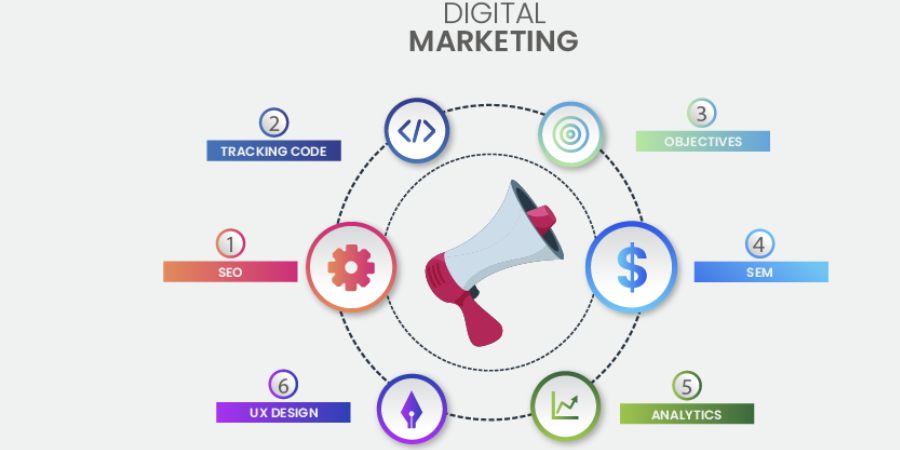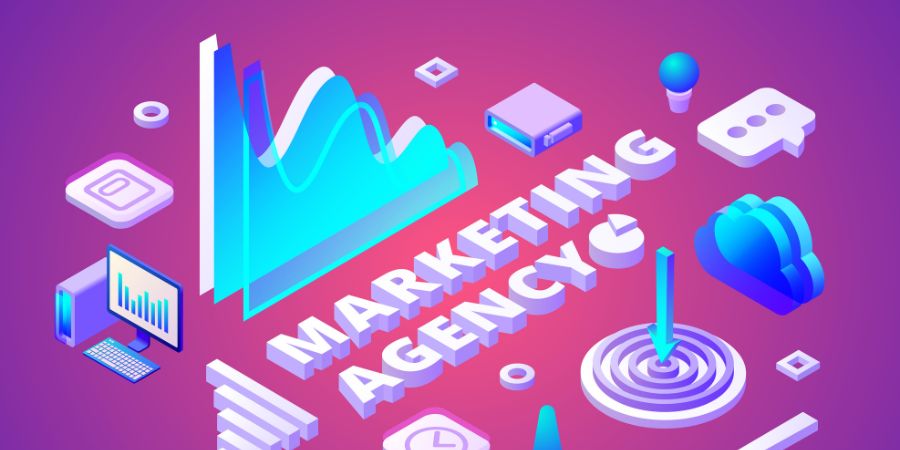
How to get started in digital marketing
How to Get Started in Digital Marketing

Introduction
The digital landscape is evolving rapidly, and getting started in digital marketing is an exciting opportunity for individuals and businesses alike. Whether you’re in Chicago, New York, or Los Angeles, establishing a strong online presence is crucial in today’s market. In this guide, we’ll walk you through everything you need to know about how to get started in digital marketing, from foundational principles to advanced strategies that can drive success in any industry.
Get Free Business Audit
We assist businesses and individuals worldwide, sticking to Islamic principles.
Table of Contents
- What is Digital Marketing?
- Why Choose Digital Marketing as a Career?
- Building the Right Skills for Digital Marketing
- Understanding Digital Marketing Channels
- Creating Your Digital Marketing Strategy
- Tools You Need to Get Started
- Best Practices in Digital Marketing
- Common Mistakes to Avoid
- How to Measure Success in Digital Marketing
- Taking the Next Step: Certifications and Courses
1. What is Digital Marketing?
Digital marketing refers to all marketing efforts that use an electronic device or the internet. Businesses leverage digital channels such as search engines, social media, email, and websites to connect with current and prospective customers. If you’re wondering how to get started in digital marketing, understanding the fundamentals is essential. Digital marketing involves promoting products or services through these channels to drive traffic, increase brand awareness, and ultimately, boost conversions.

2. Why Choose Digital Marketing as a Career?
Digital marketing is in high demand across all industries. From small businesses in local towns like Boise, Idaho to large corporations in metropolitan hubs like San Francisco, the need for skilled digital marketers continues to grow. This field offers flexibility, creativity, and measurable results, making it an attractive career choice.
Key Reasons to Pursue a Career in Digital Marketing:
- Flexibility: Work remotely or from anywhere in the U.S. as a digital marketing consultant.
- High Demand: Companies of all sizes need digital marketing to succeed.
- Measurable Results: Track your progress using data-driven tools.
3. Building the Right Skills for Digital Marketing
Getting started in digital marketing requires a blend of technical and soft skills. Here’s a breakdown of what you need to succeed:
Technical Skills:
- SEO (Search Engine Optimization)
- PPC (Pay-Per-Click) Advertising
- Content Marketing
- Social Media Marketing
- Email Marketing
- Data Analytics
Soft Skills:
- Creativity: Designing engaging campaigns.
- Communication: Effective messaging for your audience.
- Adaptability: The digital landscape changes fast.

4. Understanding Digital Marketing Channels
One of the most important aspects of learning how to get started in digital marketing is understanding the different channels available. Each channel serves a unique purpose in reaching your audience.
a. SEO (Search Engine Optimization)
SEO is essential for improving your website’s visibility on search engines like Google. It involves optimizing your content with relevant keywords, improving site speed, and building backlinks.
b. Social Media Marketing
Social media platforms like Facebook, Instagram, and LinkedIn allow you to connect with your audience in real-time, share updates, and build brand loyalty.
c. Email Marketing
Email marketing is one of the most cost-effective channels, allowing you to engage with your audience and nurture leads through personalized campaigns.
d. Pay-Per-Click (PPC) Advertising
PPC allows you to display ads on search engines or social platforms and pay only when a user clicks on your ad. Google Ads and Facebook Ads are two major PPC platforms.
5. Creating Your Digital Marketing Strategy
Every successful digital marketing campaign starts with a solid strategy. Here’s how you can create one:
a. Define Your Audience
Before you start marketing, understand who your audience is. This includes their demographics, preferences, and behaviors.
b. Set Clear Goals
Determine what you want to achieve: increased traffic, lead generation, or brand awareness.
c. Choose Your Channels
Based on your goals, select the channels that will be most effective for reaching your audience.
d. Create Engaging Content
Content is king in digital marketing. Whether it’s blog posts, videos, or infographics, make sure your content resonates with your audience.
e. Measure and Adjust
Use analytics tools to track the success of your campaigns and adjust strategies as needed.
Infographic Idea:
- Steps to Build a Digital Marketing Strategy
Visualize the process of creating a strategy in a flowchart format, from audience research to measuring results.

6. Tools You Need to Get Started
To get started in digital marketing, you’ll need access to some essential tools:
- Google Analytics: Track and analyze website traffic.
- SEMrush or Ahrefs: Perform keyword research and competitor analysis.
- Hootsuite or Buffer: Schedule and manage social media posts.
- Mailchimp: Build and manage email marketing campaigns.
- Canva: Create eye-catching graphics and infographics.
7. Best Practices in Digital Marketing
As you begin your digital marketing journey, here are some best practices to follow:
- Focus on Mobile Users: With the majority of traffic coming from mobile devices, ensure your website is mobile-friendly.
- Consistency is Key: Post content consistently across your chosen channels.
- Engage with Your Audience: Reply to comments, questions, and messages on social media and your blog.
8. Common Mistakes to Avoid
Here are some common mistakes to watch out for:
- Neglecting SEO: Without proper SEO, your content won’t rank well.
- Ignoring Analytics: Always track your campaign performance.
- Overloading on Channels: Start with a few channels and master them before expanding.
9. How to Measure Success in Digital Marketing
Success in digital marketing is measured through various KPIs (Key Performance Indicators). Here’s how you can measure the effectiveness of your campaigns:
- Traffic: Track the number of visitors to your website.
- Conversion Rate: The percentage of visitors who take the desired action (e.g., make a purchase).
- Engagement: Monitor likes, shares, and comments on social media.
- Return on Investment (ROI): Calculate how much revenue your digital marketing efforts generate versus the cost.

10. Taking the Next Step: Certifications and Courses
To truly excel in digital marketing, consider taking courses or earning certifications from platforms like Google, HubSpot, or Coursera. These certifications can boost your credibility and knowledge in the field.
To order
Conclusion
Digital marketing is an ever-evolving field, and getting started can seem overwhelming at first. However, by following this comprehensive guide, you’re setting yourself up for success. Start by mastering the basics, build your strategy, and leverage the right tools and channels to grow your business. Whether you’re based in the tech hub of San Francisco or the growing markets of Austin, Texas, digital marketing offers unlimited opportunities.



